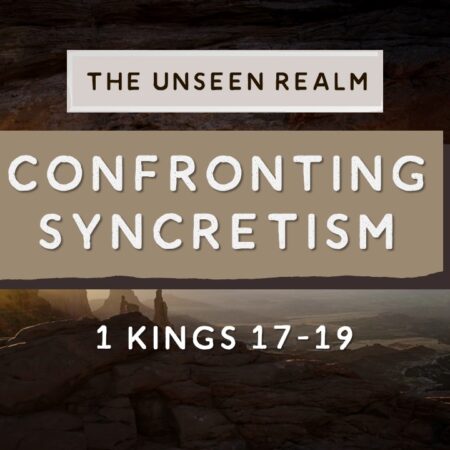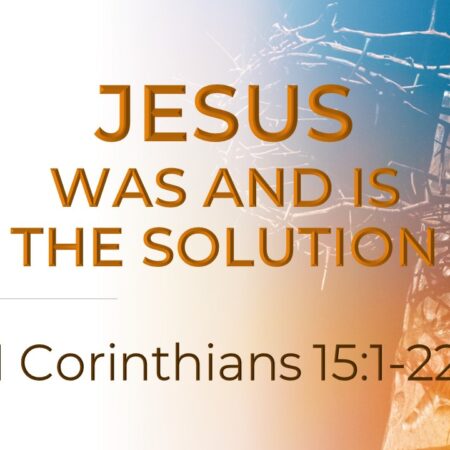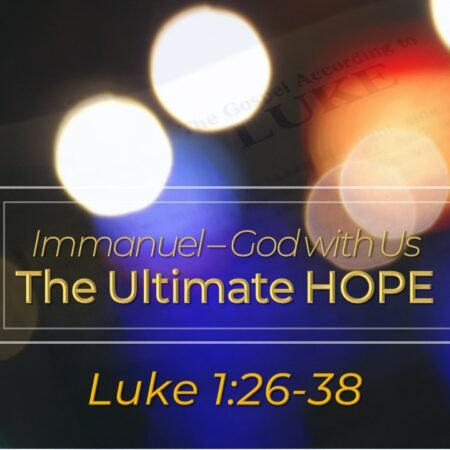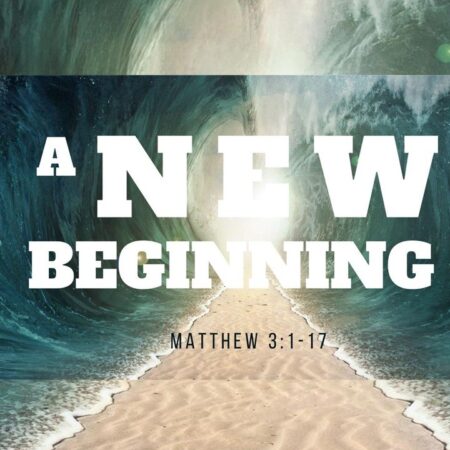1 Samuel 23:1-29 Romans 15:4
"divine council" Tagged Sermons
1 Kings 17-19 1 Kings 17:1-7 James 5:17 Leviticus 26:18-20 Deuteronomy 11:16-17 1 Kings 16:30–33 Matthew 24:37-39 1 Kings 17:1 1 Kings 17:2-7 1 Kings 18:1-16 Deuteronomy 30:19 John 6:28-29
1 Corinthians 15:1-22 John 3:16; Matthew 26:57-22; Daniel 7:9-14; Exodus 4:21-23; Matthew 27:35-46; Psalm 22:1; 7; 17-18; Psalm 22:12-13 Ephesians 4:4-10; Colossians 2:15; Colossians 1:15-20 Michael Heiser “Unseen Realm” “Israel…
Luke 1:26-38 1 Peter 1:10-12 Daniel 9:21-23 Luke 1:26-30 Isaiah 11:1-2 Isaiah 11:3-16 Luke 1:34 Luke 1:36-37 Romans 15:4-6 Biblical literacy produces biblical morality. Biblical illiteracy produces declining morals. With…
JESUS CAME TO PROCLAIM THE GOSPEL OF THE KINGDOM.
Chuck Swindoll in his commentary on this text writes:
“For many years, faulty information had been taught by the religious aristocracy. With unquestioned authority, these religious leaders twisted the meaning of Holy Scripture, offered interpretations that were simply wrong, and demanded applications that were frankly impossible. Not content to let God’s Word speak for itself, they added to the commandments of God and required that everyone obey their additions without hesitation.
When Jesus sat down and delivered His illustrious Sermon on the Mount, jaws must have dropped as His audience heard an entirely different interpretation, delivered in an entirely different mode of communication.”
Dr. Michael Heiser in his book “Supernatural” writes:
“Though Eden was lost, God intends that it be restored. Ultimately, his rule – his kingdom – will return in its full scope when Jesus comes back and God creates a new heaven and earth (one that, in Revelation 21 and 22 looks a lot like Eden.)
In the meantime, we can spread the truth of God and the gospel of Jesus everywhere. We can also represent God to everyone we meet and in every place. We are God’s agents to restore Eden in the here and now, looking forward to the day when Jesus brings that plan to a climax.”
John Stott says it this way in his commentary on Matthew:
“Christian righteousness is greater than pharisaic righteousness because it is deeper, being a righteousness of the heart.
The righteousness which is pleasing to him is an inward righteousness of MIND AND MOTIVE.”
Christopher Wright in his book “The mission of God” asks the question:
“How big is our Gospel? If our gospel is the good news about God’s redemption, then the question moves on to, “How big is our UNDERSTANDING OF REDEMPTION?
Where do we turn in the Bible for our understanding of redemption?
If you would have asked a devout Israelite in the Old Testament period “Are you redeemed?” the answer would have been a most definite yes. And if you had asked “How do you know?” you would be taken aside to sit down somewhere while your friend recounted a long and exciting story – THE STORY OF EXODUS.”
Christopher Wright is referring to Exodus 6:6: Say therefore to the people of Israel, “I am the Lord, and I will bring you out from under the burdens of the Egyptians, and I will deliver you from slavery to them, and I will REDEEM you with an outstretched arm and with great acts of judgment.
Repent is not a feeling, repent is an ACTION.
Repentance speaks of a CHANGE OF DIRECTION,
NOT A SORROW OF HEART.
Michael Heiser in “Unseen Realm» comments on this chapter:
“In Isaiah 40:1 we learn that God is the speaker. He issues four commands. All four commands are grammatically plural in Hebrew. That means that Yahweh is commanding A GROUP. The group cannot be Israelites or a collective Israel, since it is Israel that Yahweh is commanding the group to comfort, speak to, and call. You should know the identity of the group by now: THE DIVINE COUNCIL.”
“In response to the commands in Isaiah 40:1-2, a lone response comes:
A VOICE IS CALLING IN THE WILDERNESS, “CLEAR THE WAY OF YAHWEH! MAKE A HIGHWAY SMOOTH IN THE DESERT FOR OUR GOD!” (Isaiah 40:3)
Michael Heiser comments on this scene:
“Like the prophet of old, John the Baptist has “stood in the council and answered the call. To a Jew familiar with the Old Testament, the pattern would not be lost. As had been the case at the time of Isaiah, Yahweh’s council had met in regard to the fate of an apostate Israel. Isaiah had been sent to a spiritually blind and deaf nation. The calling of John the Baptist tells the reader that Yahweh’s Divine Council is in session again, only this time the aim is TO LAUNCH THE KINGDOM OF GOD WITH THE SECOND YAHWEH, NOW INCARNATE, AS ITS POINT MAN.”






